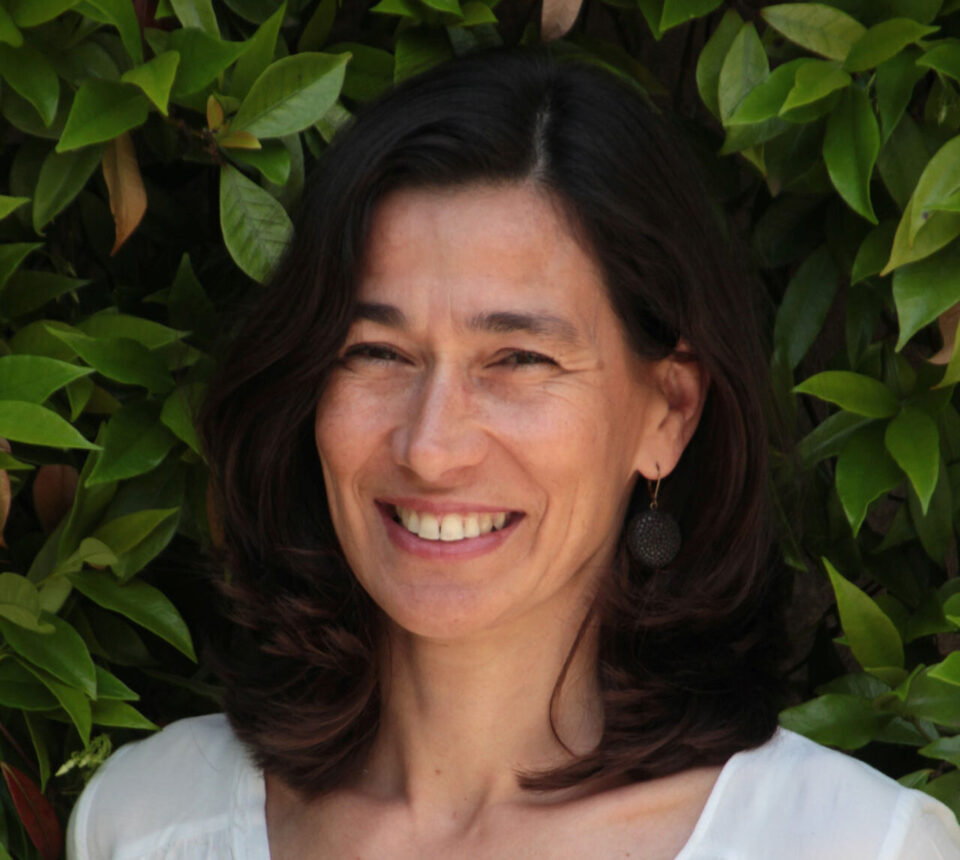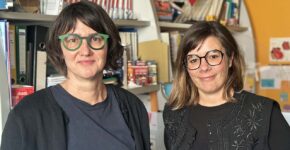Laura Michel – MAK’IT great again
A political scientist at UM, Laura Michel has been coordinating a research collective focused entirely on social sciences and humanities related to public transition policies since 2024. This role led to her appointment as director of the Mak'it program, Montpellier's institute for advanced studies specializing in transition.

Laura Michel is taking the lead. Probably because the deputy director of the Center for Political and Social Studies (Cepel) knows that the humanities and social sciences (HSS) are essential for analyzing how our societies absorb, digest, and sometimes spit out environmental issues. A specialist in the greening of industrial and territorial policies, since 2024 the researcher has been leading the Montpellier I-site's key initiative on public transition policies (KIPPT), which brings together the sciences of politics, education, economics, law, management, and geography.
100% SHS, this program involves around twenty research laboratories in Montpellier. "Our bi-monthly seminars are really dynamic, with around fifty participants at each event," says the political scientist, whose challenge is to bring researchers together as a community. With €300,000 in funding over two years, the initiative also finances multidisciplinary research projects focusing on dialogue between science and society: "A dozen projects have already been launched on topics ranging from agrivoltaics to mobility, outdoor sports, and transition financing."
Observe the trade-offs
This ambition to build relationships between researchers working on transition policies and public and civil society actors suits her well. Indeed, Laura Michel has a life outside of research, precisely in the service of local authorities and industry.
After working as a researcher at the Observatory of Local Public Service, she became a consultant on environmental conflict management for various industrial groups. This gave her an inside view of the decision-making process.
This experience convinced her to resume her research. She did so thanks to a thesis funded by Ademe in 2003, which led to a position as a lecturer at the University of Montpellier a year later. Since then, she has been looking at "how environmental issues are addressed in the public sphere and how manufacturers and elected officials integrate them, with the aim not of transforming the industrial system but of making it last." In short, she seeks to understand how the conditions for maintaining the current system, however destructive it may be, are produced.
For example, Laura Michel is interested in the processes of channeling environmental criticism into public action: "Environmental controversies have promoted the greening of public policy. But this has been met with attempts to co-opt and channel criticism by hegemonic actors, which limit its transformative potential." With 20 years of research under her belt, it is difficult to list all of her research topics. However, we can mention coastal adaptation policies to climate change and sustainable food policies, two subjects that are dear to the metropolis.
The most rewarding welcome possible
As a logical continuation of her two-year involvement in the public policy initiative on transition, Laura Michel took over as director of MAK'IT, Montpellier's institute for advanced studies (IEA), in 2025: "These IEAs are international facilities designed to welcome high-level international scientists and stimulate collective research dynamics. In Montpellier, it specializes in transition. My appointment comes at a time when the strategic committee has decided to strengthen the social sciences and humanities and the theme of transition policies within the program."
The new director has introduced a new feature to MAK'IT's recruitment system, aimed at both promoting the presence of researchers in the Montpellier scientific community and offering them the most enriching welcome possible: "We ask for a project to be jointly developed between the visiting researcher and the host unit." The application process will be more rigorous for visits lasting between three and six months. But it's worth the effort for the new director, who wants to maintain high standards after six years of operation and 75 researchers from 37 different countries.
